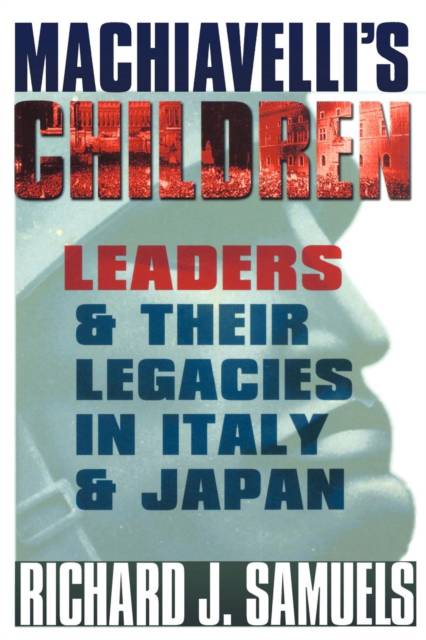
- Afhalen na 1 uur in een winkel met voorraad
- Gratis thuislevering in België vanaf € 30
- Ruim aanbod met 7 miljoen producten
- Afhalen na 1 uur in een winkel met voorraad
- Gratis thuislevering in België vanaf € 30
- Ruim aanbod met 7 miljoen producten
Machiavelli's Children
Leaders and Their Legacies in Italy and Japan
Richard J SamuelsOmschrijving
Two late-developing nations, Japan and Italy, similarly obsessed with achieving modernity and with joining the ranks of the great powers, have traveled parallel courses with very different national identities. In this audacious book about leadership and historical choices, Richard J. Samuels emphasizes the role of human ingenuity in political change. He draws on interviews and archival research in a fascinating series of paired biographies of political and business leaders from Italy and Japan. Beginning with the founding of modern nation-states after the Meiji Restoration and the Risorgimento, Samuels traces the developmental dynamic in both countries through the failure of early liberalism, the coming of fascism, imperial adventures, defeat in wartime, and reconstruction as American allies. Highlights of Machiavelli's Children include new accounts of the making of postwar Japanese politics--using American money and Manchukuo connections--and of the collapse of Italian political parties in the Clean Hands (Mani Pulite) scandal.The author also tells the more recent stories of Umberto Bossi's regional experiment, the Lega Nord, the different choices made by Italian and Japanese communist party leaders after the collapse of the USSR, and the leadership of Silvio Berlusconi and Ishihara Shintar on the contemporary right in each country.
Specificaties
Betrokkenen
- Auteur(s):
- Uitgeverij:
Inhoud
- Aantal bladzijden:
- 480
- Taal:
- Engels
Eigenschappen
- Productcode (EAN):
- 9780801489822
- Verschijningsdatum:
- 15/06/2005
- Uitvoering:
- Paperback
- Formaat:
- Trade paperback (VS)
- Afmetingen:
- 159 mm x 234 mm
- Gewicht:
- 671 g

Alleen bij Standaard Boekhandel
Beoordelingen
We publiceren alleen reviews die voldoen aan de voorwaarden voor reviews. Bekijk onze voorwaarden voor reviews.











